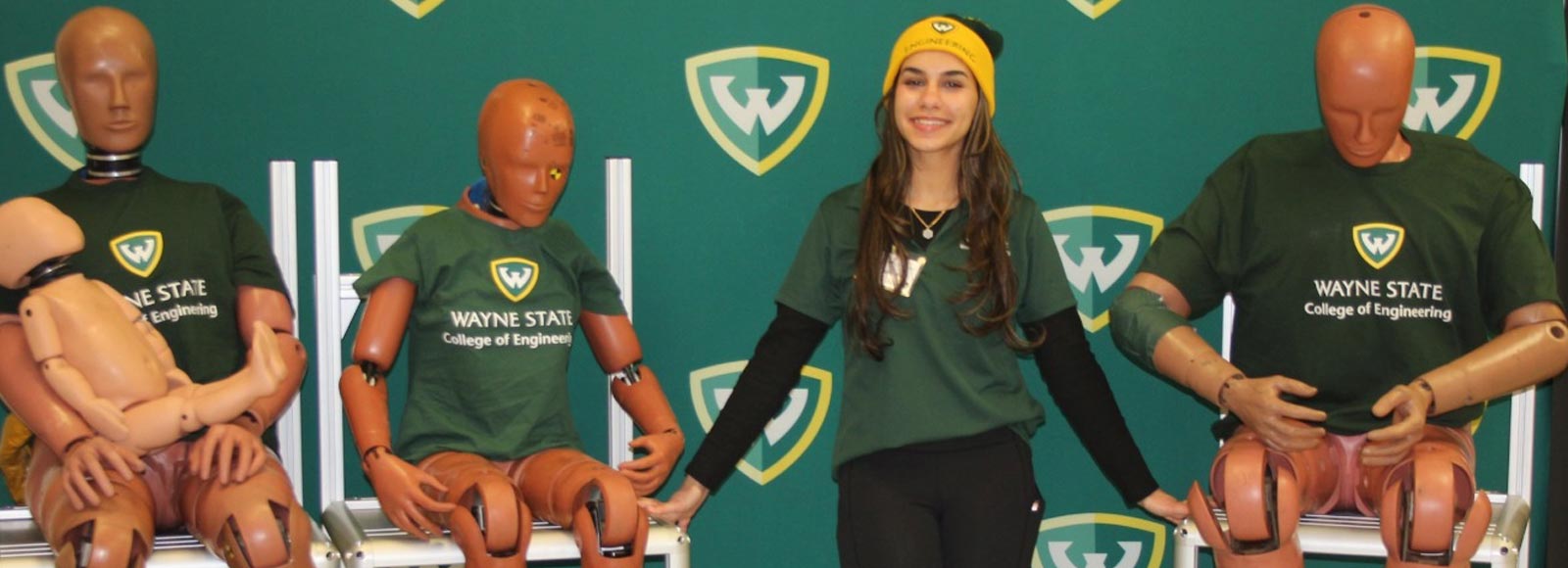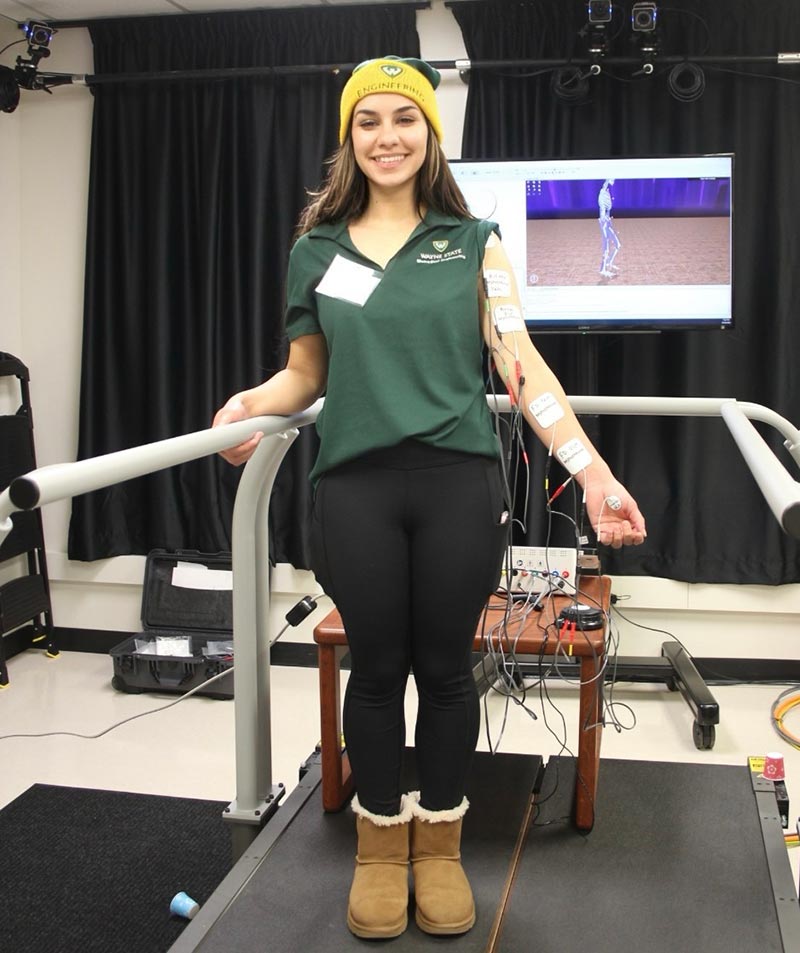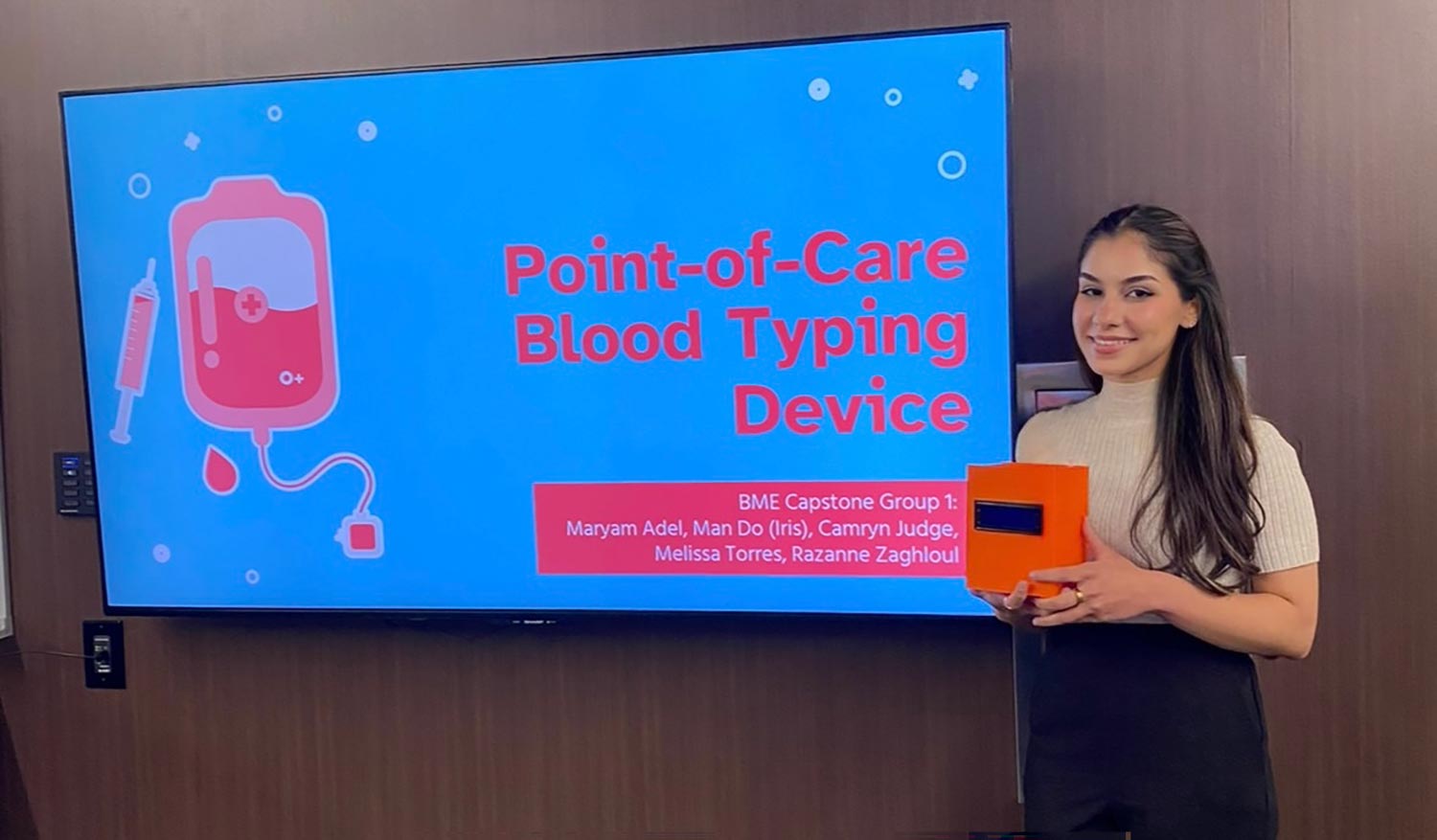Making a transformation: How BME grad Maryam Adel found her voice, passion and purpose at Wayne State

In 2014, Maryam Adel arrived in the U.S. as an Iraqi refugee. She was 13 years old and spoke very little English. Everything she knew and loved was more than 6,000 miles across the world, and she struggled to communicate, connect with others and keep up with her schoolwork.
By the time she graduated in 2019 from the Universal Learning Academy in Westland, Michigan, located 20 minutes west of Wayne State University’s campus, she had earned a scholarship to attend WSU and pursue a degree in biomedical engineering (BME) ― which she will receive at the December 2023 commencement ceremony on Saturday, Dec. 16.
“My journey has been defined by challenges, adversity and a relentless pursuit of academic excellence,” said Adel.
Emphasis on the latter, as her persistence and work ethic led to achieving a 3.9 GPA, holding leadership positions in Tau Beta Pi, and getting involved in research with the Rehab Robotics and Biomechanics (R2B) lab under the direction of Assistant Professor E. Peter Washabaugh.
Adel found her way to Wayne State because, as she was still working to deepen her foundational knowledge while overcoming a language barrier, she needed to be in a place where she felt safe, welcomed and respected. The university’s world-renowned reputation as a pioneer in BME ― as well as its hands-on, research-centered approach ― also meant she could pursue her passion for helping others through engineering and medicine.
“Wayne State stood out to me for its unique opportunities — especially in research — and its commitment to empowering students like me to thrive in a diverse and inclusive environment,” she said.

When Adel first arrived at Wayne State, the complexities of subjects such as statics, mechanics and circuits were particularly challenging. She sought support from professors during office hours, joined study groups, and leaned on her peers and mentors for help.
“These obstacles initially caused self-doubt and made coursework comprehension difficult,” she said. “However, facing these hurdles head-on became pivotal moments for my personal and professional growth.”
As she gained more solid academic footing, Adel further immersed herself into campus life. Her involvement with Tau Beta Pi not only afforded her exceptional tutoring services and networking opportunities, but allowed her to develop deeper connections with her peers and community through service. Adel volunteered with MindSET, a STEM education outreach program in which she could interact with elementary school students and share scientific concepts through engaging experiments. Moreover, it allowed her to pay it forward by becoming a teacher and mentor.
“Through these interactions, I aimed not just to teach science but to inspire curiosity and instill the belief that they could shape the world through science and engineering,” she said. “Tau Beta Pi enabled me to make a meaningful impact beyond academia, fostering a sense of fulfillment and leaving cherished memories that will stay with me for a lifetime.”
Joining the R2B lab marked a significant milestone for Adel, who was introduced to Washabaugh’s work in an information session highlighting his research in rehabilitation robotics and biomechanics. She later completed a physiology course led by Washabaugh that involved utilizing biosensors to study brain waves and muscle activities.
“I have had the great pleasure of working with and mentoring Maryam in my research laboratory,” said Washabaugh. “What impresses me about Maryam is that she consistently takes initiative. Whether that means approaching a professor for a research position, learning a new skill or laboratory technique, or securing tickets to the Barbie movie, she always attacks new challenges head-on.”
As a researcher, a memorable project for Adel was utilizing CAD and 3D printing technologies to fashion a prototype therapy device that aimed to aid stroke patients by facilitating mirrored hand movements. She and four classmates also collaborated on a capstone project to develop a portable device capable of quickly and accurately determining a patient's blood type using a single drop of blood. Washabaugh noted that her latest endeavor is to develop hand exoskeleton devices for retraining grasping after neurological injuries, which he believes could provide a game-changing solution for individuals with hand impairments.
“Wayne State's emphasis on undergraduate research is vital in bridging theoretical learning with practical application,” said Adel. “It not only enhanced my technical skills but also deepened my understanding of the human aspect in engineering, reinforcing my passion for developing impactful medical innovations.”

Adel’s educational exploration ultimately led to her taking graduate-level classes through the AGRADE program. She dove head-first into advanced coursework such as biocompatibility and anatomy, and participated in a cadaver dissection taught by Andrei Borisov that proved to be a profound experience.
“It offered a hands-on understanding of human anatomy that surpassed what textbooks or models could provide,” said Adel.
As she celebrates earning her bachelor’s and continues to work toward an M.S. in BME, Adel is reflective of how her Wayne State experience ― hands-on learning, exposure to cutting-edge technology, professional development opportunities and a supportive community ― has molded her as a student and a person.
“My journey has been a testament to the transformative power of education and inclusivity,” she said. “As I prepare to step into the next chapter of my life, I carry with me not just academic accomplishments but also the invaluable lessons of adaptability and perseverance, and the strength found in diversity instilled in me by Wayne State University.”